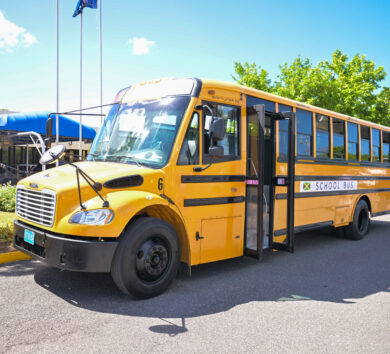

The Organization of Commonwealth Caribbean Bar Associations (OCCBA) notes that the Governor General of St. Lucia has recently assented to the Constitution of Saint Lucia (Amendment) Act and, by virtue of this, St. Lucia has officially acceded to the CCJ’s Appellate Jurisdiction.
St. Lucia now joins other Caribbean jurisdictions, namely Barbados, Belize, Dominica and Guyana to become the fifth (5th) Caricom state to become a full member of the CCJ.
We offer our heartiest congratulations to the people of St. Lucia as well as to the St. Lucia Bar Association and our colleague Attorneys-at-Law who practice in that jurisdiction.
For decades OCCBA has been actively involved in supporting the process of the establishment of the Caribbean Court of Justice (“CCJ”) and lending our influence and voice to ensuring that the CCJ will eventually become the final appellate court for all Caricom countries.
Our support for the CCJ has been consistently maintained and endorsed by the bar associations of the 15 member states comprising OCCBA. Many of these bar associations have supported the call for the CCJ to become the final appellate court for their jurisdiction. Their support includes resolutions of the various bar associations, support in public fora and debates as well as submissions to the various parliaments.
Our support for the CCJ has been consistently maintained and endorsed by the bar associations of the 15 member states comprising OCCBA. Many of these bar associations have supported the call for the CCJ to become the final appellate court for their jurisdiction. Their support includes resolutions of the various bar associations, support in public fora and debates as well as submissions to the various parliaments.
Donovan Walker, Attorney-at-Law, President of the Organization of Commonwealth Caribbean Bar Association (OCCBA)
OCCBA supports the CCJ as the final appellate court for all Caricom countries for many long-standing reasons, including the following:-
- The consultation process and debate has been long and robust throughout the region. We have seen changes to the CCJ as originally structured that will better secure its independence and ability to provide justice.
- The CCJ and its various support mechanisms and entities are now well structured to ensure and maintain the independence of the Judiciary, to attract the finest legal minds and to insulate them from political or other interference (through the mechanisms of the Regional Judicial Services Commission) and to be adequately and securely funded (through the mechanisms of the Board of Trustees responsible for administering and preserving the funds used to ensure that the CCJ is properly, independently and securely funded).
- The CCJ has been in operation for over eighteen (18) years. The CCJ comprises Judges of vast legal experience not only in the region but internationally. The various Judgments coming out of the CCJ are sound, well-reasoned and are comparable to those issued by other final appellate courts (including the Judicial Committee of the Privy Council).
- Access to the Judicial Committee of the Privy Council is simply not available for the vast majority of Caricom nationals. It is clear that while the United Kingdom Supreme Court (Judicial Committee of the Privy Council) has been an excellent final appellate court and its Law Lords have for decades provided sound Judgments, we are concerned about the ability of parties from this region to access that court not only because of the cost of travelling to and staying in London but the concomitant necessity for many Caricom nationals to obtain a Visa at prohibitive costs (to parties and their Attorneys-at-Law). These prohibitive factors impact adversely on the right of a party to be present before the hearing if the party so chooses. Many are left to comment that appeals to the Judicial Committee of the Privy Council are either for the “well-heeled” or “convicted criminals at the mercy of pro bono Attorneys”.
- The CCJ is already established and paid for. No further investment is required.
As regards the timing and process of the CCJ becoming the final appellate court for the remaining ten (10) Caricom jurisdictions (that have not yet become full members of the CCJ) OCCBA recognizes that each country will have their own processes and relevant legal and constitutional amendments as well as changes to other laws, regulations rules and codes.

We call upon regional lawmakers to take a considered/responsible approach to this important issue and to support the CCJ as the final appellate court for all Commonwealth Caribbean jurisdictions. We clarify that we are not taking “political sides” and do not intend to be embroiled in a “political tug-of-war”. Our support for the CCJ is based on a considered examination of the CCJ which is well-established, financed and ready to work in the interest of dispensing justice in a fair and unbiased manner for all those seeking justice before that court.
We implore those governments (particularly those presently undergoing constitutional reforms, such as Jamaica) to treat as an urgent imperative the necessary changes/reforms of the constitutional, legal and administrative frameworks geared towards the CCJ becoming the final appellate court.
We also urge the various Bar Associations to assume an active role in this important exercise and to lend their voice, experience and guidance aimed at achieving this objective.







Comments